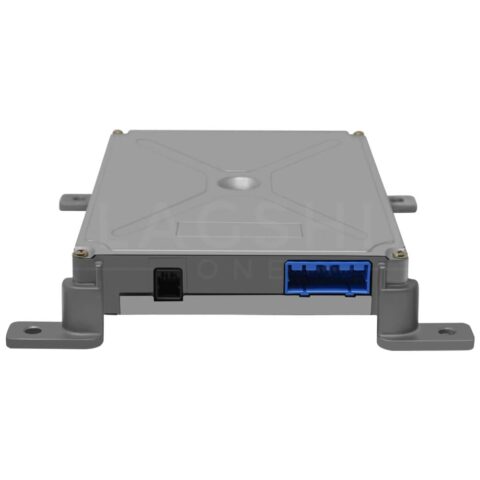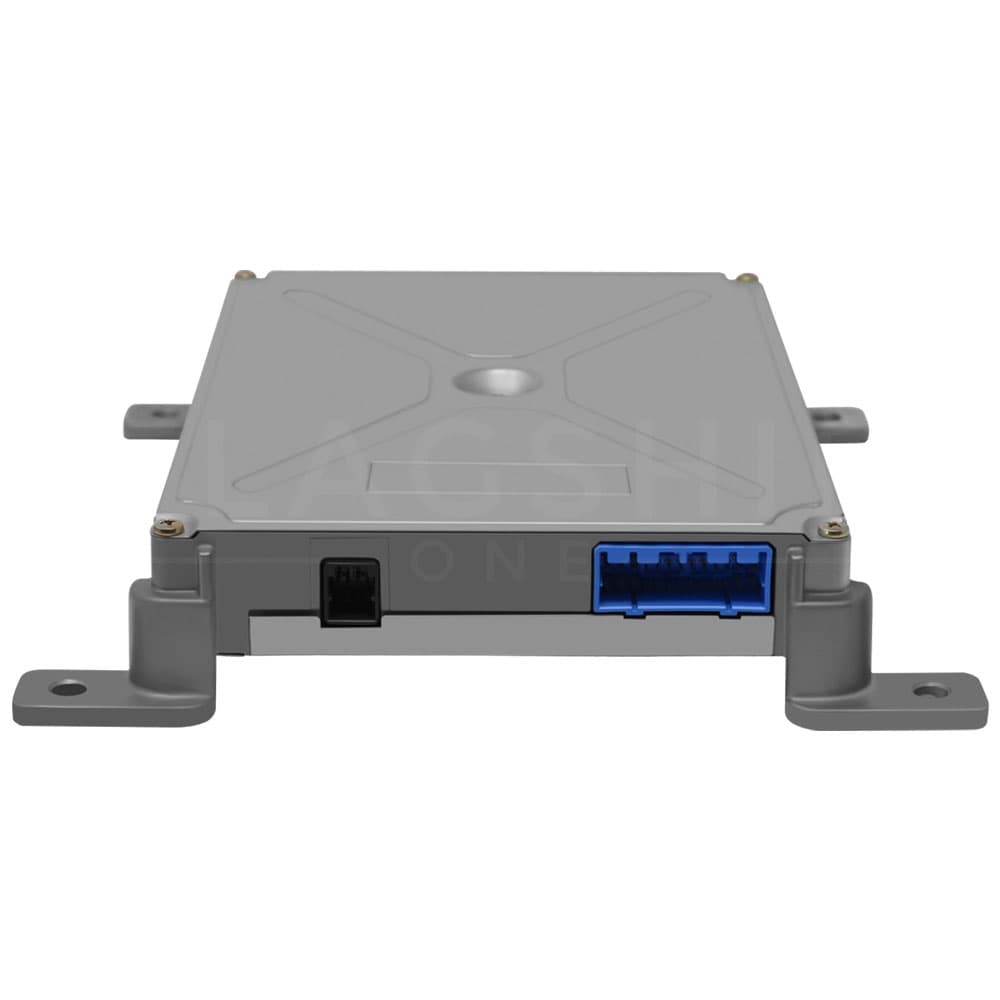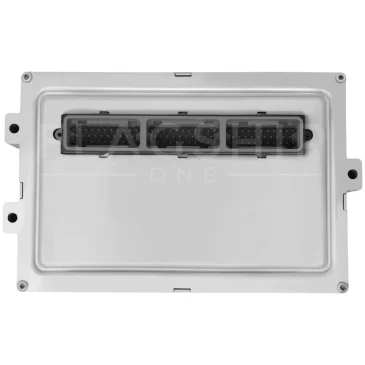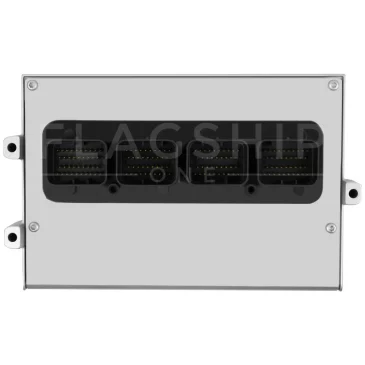Last updated on November 1st, 2024 at 11:34 am
The Acura TL is a mid-size luxury sedan that has earned high praise for its blend of comfort, performance, and reliability. This model, introduced by Honda’s luxury division, rapidly garnered a loyal customer base due to its expert blend of powerful engines, luxurious amenities, and high-end tech features. However, the cornerstone of the Acura TL’s performance and operational efficiency lies in its Engine Control Module (ECM), also known as the Powertrain Control Module (PCM).
The ECM/PCM, acting as the automotive brain, plays a crucial role in maintaining the vehicle’s overall health. It controls diverse aspects of the vehicle, including fuel mixture, ignition timing, and variable valve timing. Regular maintenance of the ECM is crucial to ensure that your Acura TL continues to deliver optimal performance and fuel efficiency. A well-functioning ECM can make the difference between a smooth, powerful ride and a lackluster driving experience.
Functions of the ECU in the TL

The ECU, or the ECM/PCM in the Acura TL, is a sophisticated piece of technology that manages a wide range of systems in the vehicle. It continuously monitors and adjusts the engine’s air-fuel mixture to ensure efficient combustion, leading to optimal performance and reduced emissions. The ignition timing, controlled by the ECM, determines when a spark will occur to start the fuel burning process, directly influencing the engine’s power and efficiency.
Furthermore, the ECM manages the variable valve timing, a technique used to increase an engine’s performance and fuel efficiency by altering the timing of the intake and exhaust valves. With the precise control of these systems, the ECM helps the Acura TL to deliver a powerful, smooth, and efficient driving experience. The ECM is also responsible for diagnosing and reporting any problems with the engine, making it easier to maintain the vehicle’s health.
Lastly, the ECM interacts with other control units within the vehicle, such as the Transmission Control Module (TCM) and the Body Control Module (BCM), coordinating their operations seamlessly to ensure a unified and optimal performance. Regular maintenance and check-ups for your ECM can help prevent any disruptions in these systems and keep your Acura TL running at its best.
Indicators of a Working and Non-Working ECU in Your Acura TL
A properly functioning Engine Control Unit (ECU), or ECM/PCM, in your Acura TL should provide a smooth and efficient driving experience. Here are some signs that your ECU is working correctly:
- Smooth Engine Performance: If the engine’s operation is smooth and consistent, providing ideal power output without any hiccups, this is a good sign that your ECU is functioning as it should.
- Optimal Fuel Efficiency: If your vehicle is delivering its rated fuel efficiency consistently, it means the ECU is successfully controlling the air-fuel mixture and the variable valve timing, thus ensuring optimal engine performance.
- Absence of Warning Lights: A clear dashboard, free of any warning lights (like the Check Engine Light), is a positive indicator of a well-functioning ECU.
On the other hand, a malfunctioning ECU can lead to various problems. Here are some signs that your ECU might need attention:
Inconsistent Engine Performance: If the engine frequently stalls, shakes or hesitates, it might indicate an issue with the ECU.
Decreased Fuel Efficiency: A sudden drop in fuel efficiency might be a signal that the ECU is not properly controlling the air-fuel mixture or the variable valve timing.
Illuminated Check Engine Light: If the Check Engine Light comes on and stays on, it’s a sign that the ECU has detected a problem. The specific issue will need to be diagnosed with a suitable diagnostic tool.
Difficulty Starting the Vehicle: If the vehicle struggles to start or doesn’t start at all, it could be an indication of a faulty ECU.
In conclusion, the Engine Control Unit (ECU), or ECM/PCM, is the linchpin of your Acura TL’s operational efficiency and performance. It meticulously monitors, regulates, and adjusts key parameters like the air-fuel mixture, ignition timing, and variable valve timing. This precise control ensures optimal engine performance, maximum fuel efficiency, and a smooth, seamless driving experience. Moreover, its diagnostic capabilities enable early detection of potential issues, ensuring the vehicle’s longevity and passenger safety.
Regular maintenance and timely intervention in case of malfunctions are vital to keep the ECU, and by extension, your Acura TL functioning flawlessly. It’s clear that the health of your ECM/PCM has a direct impact on the health of your vehicle. Therefore, recognizing and understanding its importance is crucial for every Acura TL owner. To all Acura TL owners, we invite you to browse through our extensive selection of TL-compatible Engine Control Units (ECUs), including the ECM/PCM models.
Our years of experience and dedication to quality control have established us as a trusted source for automotive control units. You can rely on us to provide the perfect ECU that will ensure your Acura TL continues to deliver its exceptional performance, fuel efficiency, and reliability. Don’t let a malfunctioning ECU compromise your driving experience. Take action today and explore the best in class ECM/PCM units available at Flagship One, Inc. Your vehicle deserves nothing less than the best!
DIAGNOSTIC TROUBLE CODES THAT RELATES TO THE PCM
Diagnostic Trouble Codes (DTCs) are codes that are stored by a vehicle’s on-board diagnostic (OBD) system when it detects a fault with the vehicle’s powertrain system.
P0100: Mass or Volume Air Flow Circuit Malfunction
P0101: Mass or Volume Air Flow Circuit Range/Performance
P0102: Mass or Volume Air Flow Circuit Low Input
P0103: Mass or Volume Air Flow Circuit High Input
P0110: Intake Air Temperature Circuit Malfunction
P0113: Intake Air Temperature Sensor 1 Circuit High
P0172: System Too Rich (Bank 1)
P0120: Throttle/Pedal Position Sensor/Switch “A” Circuit Malfunction
P0130: Oxygen Sensor Circuit Malfunction (Bank 1, Sensor 1)
P0131: Oxygen Sensor Circuit Range/Performance (Bank 1, Sensor 1)
P0132: Oxygen Sensor Circuit High Voltage (Bank 1, Sensor 1)
P0133: Oxygen Sensor Circuit Slow Response (Bank 1, Sensor 1)
P0134: Oxygen Sensor Circuit Intermittent (Bank 1, Sensor 1)
P0135: Oxygen Sensor Circuit Malfunction (Bank 1, Sensor 2)
P0136: Oxygen Sensor Circuit Range/Performance (Bank 1, Sensor 2)
P0137: Oxygen Sensor Circuit Low Voltage (Bank 1, Sensor 2)
P0138: Oxygen Sensor Circuit High Voltage (Bank 1, Sensor 2)
P0139: Oxygen Sensor Circuit Intermittent (Bank 1, Sensor 2)
P0140: Oxygen Sensor Circuit Malfunction (Bank 2, Sensor 1)
P0141: Oxygen Sensor Circuit Range/Performance (Bank 2, Sensor 1)
P0142: Oxygen Sensor Circuit Low Voltage (Bank 2, Sensor 1)
P0143: Oxygen Sensor Circuit High Voltage (Bank 2, Sensor 1)
P0144: Oxygen Sensor Circuit Intermittent (Bank 2, Sensor 1)
Here is a list of some diagnostic trouble codes (DTCs) that begin with the letter “U” and could potentially indicate a fault with the powertrain control module (PCM) in a vehicle:
U0100: Lost Communication with Engine Control Module/Powertrain Control Module
U0101: Lost Communication with Transmission Control Module
U0102: Lost Communication with Transfer Case Control Module
U0103: Lost Communication with Throttle Actuator Control Motor Circuit
U0104: Lost Communication with Throttle Actuator Control Motor Circuit Range/Performance
U0105: Lost Communication with Throttle Actuator Control Motor Circuit Low
U0106: Lost Communication with Throttle Actuator Control Motor Circuit High
U0107: Lost Communication with Throttle Actuator Control Motor Circuit Intermittent
U0108: Lost Communication with Throttle Actuator Control Motor Circuit Open
U0109: Lost Communication with Throttle Actuator Control Motor Circuit Short to Ground
U0110: Lost Communication with Throttle Actuator Control Motor Circuit Short to Battery
U0111: Lost Communication with Throttle Actuator Control Motor Circuit Short to Power
U0112: Lost Communication with Throttle Actuator Control Motor Circuit Short to Ground
U0113: Lost Communication with Throttle Actuator Control Motor Circuit Short to Battery
U0114: Lost Communication with Throttle Actuator Control Motor Circuit Short to Power
U0115: Lost Communication with Throttle Actuator Control Motor Circuit Failure
U0116: Lost Communication with Throttle Actuator Control Motor Circuit Range/Performance
Note: These codes are just a small sample and there are many other DTC codes that could potentially indicate a fault with the PCM. Additionally, the specific codes that are relevant will depend on the make and model of the vehicle. It is important to consult the vehicle’s service manual or a professional mechanic for more information about interpreting DTC codes.




